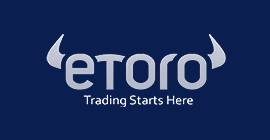Chime's IPO: A New Dawn for Fintech?
June 12, 2025, 9:37 pm

Location: United Kingdom, England, London
Employees: 1001-5000
Founded date: 2006
Total raised: $406.6M
Chime has stepped into the spotlight. The online banking provider made its debut on the Nasdaq under the ticker symbol CHYM. The excitement is palpable. Investors are watching closely. This is not just another IPO; it’s a litmus test for the fintech sector.
Chime priced its initial public offering at $27 per share. This was above the expected range. The company raised around $700 million, valuing itself at approximately $11.6 billion. This is a significant drop from its previous valuation of $25 billion in 2021. The fintech landscape has changed. The once-booming market has faced headwinds. Rising interest rates and valuation resets have put many companies on hold.
But Chime is pushing forward. It’s a sign that the IPO market may be thawing. Recent debuts from eToro and Circle have sparked optimism. Both companies saw strong initial gains. Chime hopes to ride this wave.
The company reported $518.7 million in revenue for the last quarter. That’s a 32% increase from the previous year. However, net income fell slightly to $12.9 million. This is down from $15.9 million a year ago. The numbers tell a story of growth but also caution.
Chime has carved a niche. It serves Americans earning $100,000 or less. This demographic often gets overlooked by traditional banks. Chime’s CEO emphasizes the importance of this focus. The company helps its members avoid fees, access short-term liquidity, and build credit. This resonates with everyday consumers.
Chime’s customer base is loyal. Two-thirds of users treat Chime as their primary banking account. The average customer completes over 55 transactions monthly. They interact with the app four to five times a day. Active member growth surged by 23% in the first quarter. This is a promising sign for the company.
However, customer acquisition is costly. Chime spent $1.4 billion on marketing between 2022 and 2024. Yet, once users set up direct deposit, retention rates soar above 90%. This indicates that once customers switch, they tend to stay.
Chime’s revenue model is straightforward. It primarily earns from interchange fees. These are the charges merchants pay when customers use Chime cards. This contrasts with traditional banks that rely heavily on fees from overdrafts and minimum balances. Analysts describe Chime’s business model as simplistic. But simplicity can be powerful.
The performance of Chime in the public markets will set the tone for others. Several fintech companies, including Klarna and Gemini, are eyeing IPOs. If Chime’s debut goes well, it could open the floodgates. Other companies may feel encouraged to follow suit. Conversely, a poor performance could lead to hesitation.
Chime’s journey to this point has not been easy. The company faced a steep valuation cut. It has navigated a challenging landscape. Yet, it remains resilient. The support from top institutional shareholders like DST Global and Crosslink Capital is a testament to its potential.
The fintech sector is at a crossroads. Chime’s IPO is a pivotal moment. It could signal a resurgence in public interest. Or it could highlight ongoing challenges. Investors are on edge. They want to see if Chime can deliver.
The company’s focus on no-fee banking services, debit cards, and early paycheck access positions it well. It competes with established players like PayPal and Square. But Chime’s unique approach may give it an edge.
Chime’s IPO is more than just numbers. It’s about the future of banking. It’s about how technology can reshape finance. The company’s commitment to serving everyday Americans is commendable.
As the market opens, all eyes will be on Chime. Will it soar or stumble? The answer could reshape the fintech landscape. Investors are ready. The stage is set. Chime has the chance to shine.
In conclusion, Chime’s IPO is a significant event. It reflects the changing tides of the fintech industry. The company’s focus on a specific demographic, coupled with its innovative approach, could redefine banking. The coming months will reveal whether Chime can sustain its momentum. The world is watching. The future of fintech hangs in the balance.
Chime priced its initial public offering at $27 per share. This was above the expected range. The company raised around $700 million, valuing itself at approximately $11.6 billion. This is a significant drop from its previous valuation of $25 billion in 2021. The fintech landscape has changed. The once-booming market has faced headwinds. Rising interest rates and valuation resets have put many companies on hold.
But Chime is pushing forward. It’s a sign that the IPO market may be thawing. Recent debuts from eToro and Circle have sparked optimism. Both companies saw strong initial gains. Chime hopes to ride this wave.
The company reported $518.7 million in revenue for the last quarter. That’s a 32% increase from the previous year. However, net income fell slightly to $12.9 million. This is down from $15.9 million a year ago. The numbers tell a story of growth but also caution.
Chime has carved a niche. It serves Americans earning $100,000 or less. This demographic often gets overlooked by traditional banks. Chime’s CEO emphasizes the importance of this focus. The company helps its members avoid fees, access short-term liquidity, and build credit. This resonates with everyday consumers.
Chime’s customer base is loyal. Two-thirds of users treat Chime as their primary banking account. The average customer completes over 55 transactions monthly. They interact with the app four to five times a day. Active member growth surged by 23% in the first quarter. This is a promising sign for the company.
However, customer acquisition is costly. Chime spent $1.4 billion on marketing between 2022 and 2024. Yet, once users set up direct deposit, retention rates soar above 90%. This indicates that once customers switch, they tend to stay.
Chime’s revenue model is straightforward. It primarily earns from interchange fees. These are the charges merchants pay when customers use Chime cards. This contrasts with traditional banks that rely heavily on fees from overdrafts and minimum balances. Analysts describe Chime’s business model as simplistic. But simplicity can be powerful.
The performance of Chime in the public markets will set the tone for others. Several fintech companies, including Klarna and Gemini, are eyeing IPOs. If Chime’s debut goes well, it could open the floodgates. Other companies may feel encouraged to follow suit. Conversely, a poor performance could lead to hesitation.
Chime’s journey to this point has not been easy. The company faced a steep valuation cut. It has navigated a challenging landscape. Yet, it remains resilient. The support from top institutional shareholders like DST Global and Crosslink Capital is a testament to its potential.
The fintech sector is at a crossroads. Chime’s IPO is a pivotal moment. It could signal a resurgence in public interest. Or it could highlight ongoing challenges. Investors are on edge. They want to see if Chime can deliver.
The company’s focus on no-fee banking services, debit cards, and early paycheck access positions it well. It competes with established players like PayPal and Square. But Chime’s unique approach may give it an edge.
Chime’s IPO is more than just numbers. It’s about the future of banking. It’s about how technology can reshape finance. The company’s commitment to serving everyday Americans is commendable.
As the market opens, all eyes will be on Chime. Will it soar or stumble? The answer could reshape the fintech landscape. Investors are ready. The stage is set. Chime has the chance to shine.
In conclusion, Chime’s IPO is a significant event. It reflects the changing tides of the fintech industry. The company’s focus on a specific demographic, coupled with its innovative approach, could redefine banking. The coming months will reveal whether Chime can sustain its momentum. The world is watching. The future of fintech hangs in the balance.

